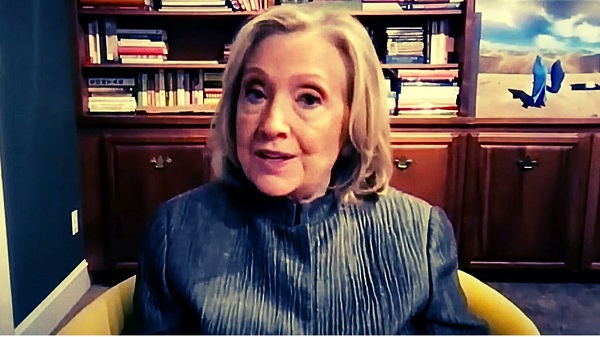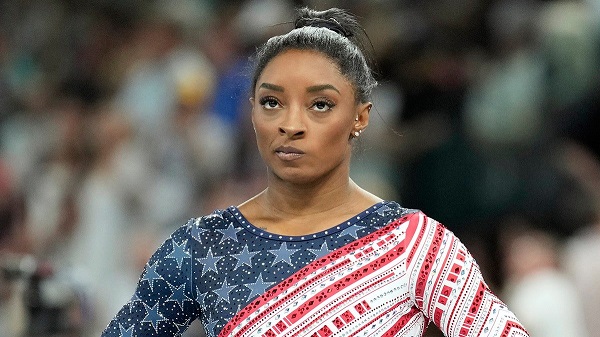Censorship Industrial Complex
Hillary Clinton Calls for Stricter Online Censorship as Establishment Fears Losing “Total Control”

From Reclaim The Net
|
In an interview with CNN, former Secretary of State Hillary Clinton expressed her pressing need for social media companies to enhance censorship measures, suggesting that failure to do so would lead to the loss of “total control.” This declaration aligns with broader concerns expressed by figures within the Democratic Party regarding the control of information online.
Clinton’s remarks come in the wake of substantial changes in the space of online expression, notably influenced by Elon Musk’s acquisition of Twitter in 2022. Under Musk’s stewardship, the platform, now rebranded as X, has championed a more laissez-faire approach to content moderation. This stance has facilitated a pushback against what some perceive as misleading mainstream narratives, particularly evident in the recent coverage of FEMA’s reported mishandling of hurricane relief efforts in North Carolina, Georgia, and Tennessee – a narrative that the government is calling “misinformation.” During her conversation with Michael Smerconish, Clinton criticized the existing legal framework that she believes enables unchecked content dissemination. “We should be, in my view, repealing something called Section 230, which gave platforms on the internet immunity because they were thought to be just pass-throughs, that they shouldn’t be judged for the content that is posted,” she explained. “If they don’t moderate and monitor the content, we lose total control,” Clinton argued, using the think of the children argument. She argues that this perspective is outdated and that without active moderation from platforms like Facebook, Twitter/X, Instagram, and TikTok, the consequences extend beyond mere social and psychological impacts to encompass real-world harm. Adding to the discourse, John Kerry recently echoed similar sentiments at a World Economic Forum sustainability meeting, bemoaning the obstacles the First Amendment poses in controlling information flow. “It’s really hard to govern today. The referees we used to have to determine what’s a fact and what isn’t a fact has been eviscerated to a certain degree,” Kerry stated. |
|
|
|
Since you’re reading this, we hope you find Reclaim The Net useful. Today, we could use your help. We depend on supporters (averaging $15), but fewer than 0.2% of readers choose to give. If you donate just $5, (or the equivalent in your currency) you would help keep Reclaim The Net thriving for years. You don’t have to become a regular supporter; you can make a one-time donation. Please take a minute to keep Reclaim The Net going.
Thank you.
|
Business
Telegram founder Pavel Durov exposes crackdown on digital privacy in Tucker Carlson interview

From LifeSiteNews
By Robert Jones
Durov, who was detained in France in 2024, believes governments are seeking to dismantle personal freedoms.
Tucker Carlson has interviewed Telegram founder Pavel Durov, who remains under judicial restrictions in France nearly a year after a surprise arrest left him in solitary confinement for four days — without contact with his family, legal clarity, or access to his phone.
Durov, a Russian-born tech executive now based in Dubai, had arrived in Paris for a short tourist visit. Upon landing, he was arrested and accused of complicity in crimes committed by Telegram users — despite no evidence of personal wrongdoing and no prior contact from French authorities on the matter.
In the interview, Durov said Telegram has always complied with valid legal requests for IP addresses and other data, but that France never submitted any such requests — unlike other EU states.
Telegram has surpassed a billion users and over $500 million in profit without selling user data, and has notably refused to create government “backdoors” to its encryption. That refusal, Durov believes, may have triggered the incident.
READ: Arrest of Telegram founder Pavel Durov signals an increasing threat to digital freedom
French prosecutors issued public statements, an unusual move, at the time of his arrest, fueling speculation that the move was meant to send a message.
At present, Durov remains under “judicial supervision,” which limits his movement and business operations.
Carlson noted the irony of Durov’s situating by calling to mind that he was not arrested by Russian President Vladimir Putin but rather a Western democracy.
Former President of Russia Dmitry Medvedev has said that Durov should have stayed in Russia, and that he was mistaken in thinking that he would not have to cooperate with foreign security services.
Durov told Carlson that mandates for encryption “backdoors” endanger all users, not just suspects. Once created, such tools inevitably become accessible to hackers, foreign agents, and hostile regimes.
“In the US,” he commented, “you have a process that allows the government to actually force any engineer in any tech company to implement a backdoor and not tell anyone about it.”
READ: Does anyone believe Emmanuel Macron’s claim that Pavel Durov’s arrest was not political?
Durov also pointed to a recent French bill — which was ultimately defeated in the National Assembly — that would have required platforms to break encryptions on demand. A similar EU proposal is now under discussion, he noted.
Despite the persecution, Durov remains committed to Telegram’s model. “We monetize in ways that are consistent with our values,” he told Carlson. “We monetized without violating privacy.”
There is no clear timeline for a resolution of Durov’s case, which has raised serious questions about digital privacy, online freedom, and the limits of compliance for tech companies in the 21st century.
Censorship Industrial Complex
Alberta senator wants to revive lapsed Trudeau internet censorship bill

From LifeSiteNews
Senator Kristopher Wells and other senators are ‘interested’ in reviving the controversial Online Harms Act legislation that was abandoned after the election call.
A recent Trudeau-appointed Canadian senator said that he and other “interested senators” want the current Liberal government of Prime Minister Mark Carney to revive a controversial Trudeau-era internet censorship bill that lapsed.
Kristopher Wells, appointed by former Prime Minister Justin Trudeau last year as a senator from Alberta, made the comments about reviving an internet censorship bill recently in the Senate.
“In the last Parliament, the government proposed important changes to the Criminal Code of Canada designed to strengthen penalties for hate crime offences,” he said of Bill C-63 that lapsed earlier this year after the federal election was called.
Bill C-63, or the Online Harms Act, was put forth under the guise of protecting children from exploitation online.
While protecting children is indeed a duty of the state, the bill included several measures that targeted vaguely defined “hate speech” infractions involving race, gender, and religion, among other categories. The proposal was thus blasted by many legal experts.
The Online Harms Act would have in essence censored legal internet content that the government thought “likely to foment detestation or vilification of an individual or group.” It would be up to the Canadian Human Rights Commission to investigate complaints.
Wells said that “Bill C-63 did not come to a vote in the other place and in the dying days of the last Parliament the government signaled it would be prioritizing other aspects of the bill.”
“I believe Canada must get tougher on hate and send a clear and unequivocal message that hate and extremism will never be tolerated in this country no matter who it targets,” he said.
Carney, as reported by LifeSiteNews, vowed to continue in Trudeau’s footsteps, promising even more legislation to crack down on lawful internet content.
Before the April 28 election call, the Liberals were pushing Bill C-63.
Wells asked if the current Carney government remains “committed to tabling legislation that will amend the Criminal Code as proposed in the previous Bill C-63 and will it commit to working with interested senators and community stakeholders to make the changes needed to ensure this important legislation is passed?”
Seasoned Senator Marc Gold replied that he is not in “a position to speculate” on whether a new bill would be brought forward.
Before Bill C-63, a similar law, Bill C-36, lapsed in 2021 due to that year’s general election.
As noted by LifeSiteNews, Wells has in the past advocated for closing Christian schools that refuse to violate their religious principles by accepting so-called Gay-Straight Alliance Clubs and spearheaded so-called “conversion therapy bans.”
Other internet censorship bills that have become law have yet to be fully implemented.
Last month, LifeSiteNews reported that former Minister of Environment Steven Guilbeault, known for his radical climate views, will be the person in charge of implementing Bill C-11, a controversial bill passed in 2023 that aims to censor legal internet content in Canada.
-

 Business19 hours ago
Business19 hours agoCarney’s European pivot could quietly reshape Canada’s sovereignty
-

 Alberta18 hours ago
Alberta18 hours agoAlberta’s grand bargain with Canada includes a new pipeline to Prince Rupert
-

 conflict4 hours ago
conflict4 hours ago“Evacuate”: Netanyahu Warns Tehran as Israel Expands Strikes on Iran’s Military Command
-

 Crime1 day ago
Crime1 day agoManhunt on for suspect in shooting deaths of Minnesota House speaker, husband
-

 Energy4 hours ago
Energy4 hours agoCould the G7 Summit in Alberta be a historic moment for Canadian energy?
-

 Bruce Dowbiggin3 hours ago
Bruce Dowbiggin3 hours agoWOKE NBA Stars Seems Natural For CDN Advertisers. Why Won’t They Bite?
-

 Crime3 hours ago
Crime3 hours agoMinnesota shooter arrested after 48-hour manhunt
-

 Aristotle Foundation1 hour ago
Aristotle Foundation1 hour agoThe Canadian Medical Association’s inexplicable stance on pediatric gender medicine





